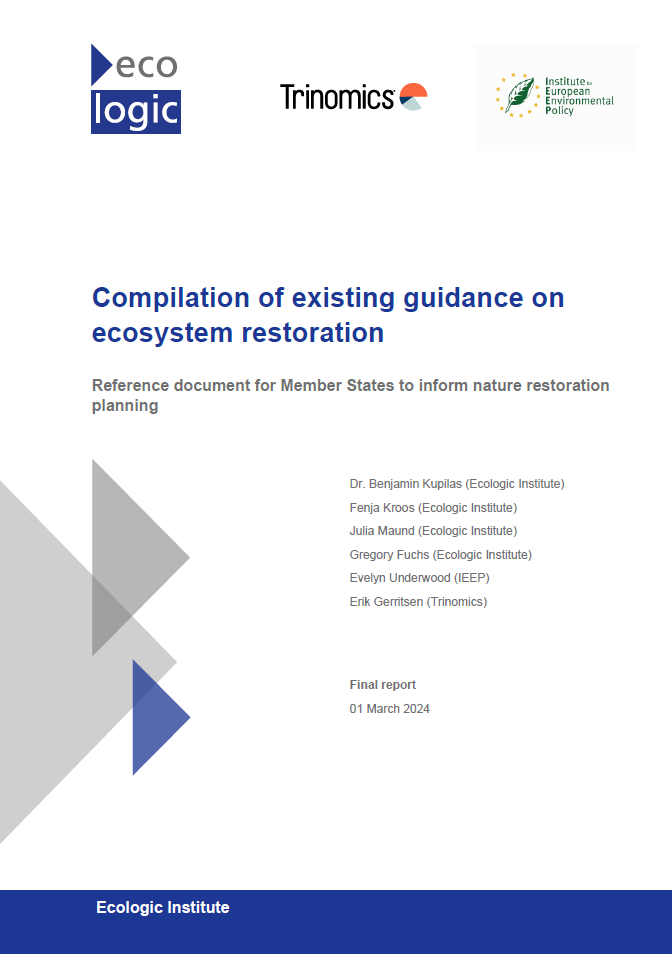Compilation of Existing Guidance on Ecosystem Restoration
- Publication
- Citation
Kupilas, Benjamin, et al. (2024): Compilation of existing guidance on ecosystem restoration. Ecologic Institute, Berlin.
Last month, the Nature Restoration Law (NRL) was formally adopted. A majority of EU member states (MS) gave the final green light on 17th June 2024 during a Council meeting.
This regulation sets legally binding targets to restore at least 20% of the EU's degraded land and sea areas by 2030 and all ecosystems in need of restoration by 2050. It sets obligations for nature restoration in all listed ecosystems – from terrestrial to marine, to freshwater and urban ecosystems.
One of the next steps is for MS to adopt national restoration plans (NRPs) in an open, transparent as well as inclusive process, detailing how they intend to achieve the Nature Restoration Law (NRL) targets.
Ecologic Institute was commissioned to compile existing guidance on ecosystem restoration. We developed a document that compiles useful sources for MS to inform nature restoration planning. It aims to support MS in the contextualization, design and planning of nature restoration measures in their NRPs and includes links to established
- guidelines and standards,
- key platforms and networks, and
- databases.
The document comprises over 270 resources. Each resource is accompanied by a brief description, a link to the relevant platform, and index criteria for facilitating targeted searches (e.g., by region, restoration target, document type, and restoration stage). Chapter 1 presents overarching guidelines on restoration, databases, and networks applicable to all MS for informing restoration efforts across ecosystem types and various phases of the restoration process. Chapters 2 to 8 delve into specifics relevant to Articles 4 to 10 of the NRL, covering the ecosystems and habitats addressed in these articles: terrestrial, coastal, and freshwater ecosystems (Article 4), marine ecosystems (Article 4), urban ecosystems (Article 6), natural connectivity of rivers, and natural functions of the related floodplains (Article 7), pollinator populations (Article 8), agricultural ecosystems (Article 9) as well as forest ecosystems (Article 10). In addition, chapter 9 outlines national restoration guidelines gathered from MS.





